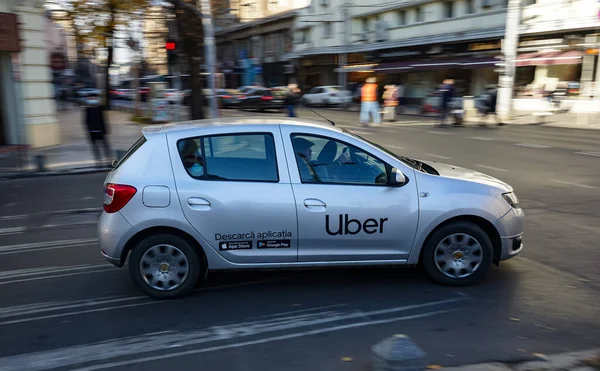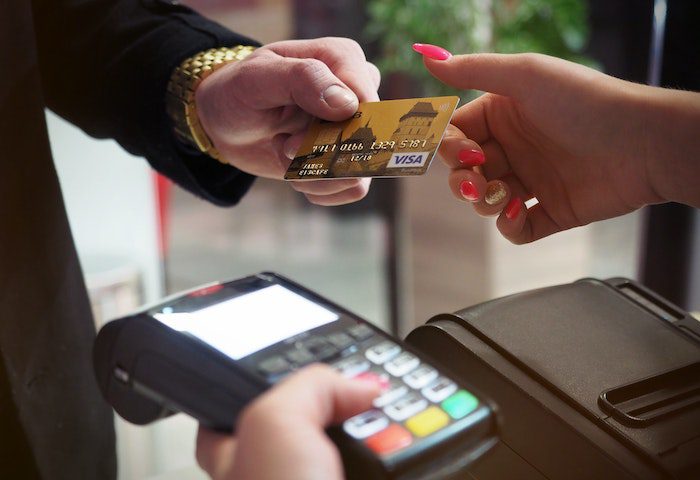Are you looking for the money you will make running an Uber business in Kenya?
Uber is the most profitable, reliable, safe, and affordable ride-hailing app in Kenya. Its cabs, motorbikes and food app services are very popular in Nairobi, Mombasa, and Kisumu cities. It has been a key source of job opportunities and profits for thousands of drivers and car owners. Despite facing some regulatory challenges, it remains one of the most profitable business ideas in Kenya’s transportation sector.
In this post, you will learn how profitable Uber business is in Kenya including steps on how to start it successfully, common costs and the profits you can make.
Expand to see Table of Contents
- How does Uber Business work?
- Why Invest in Uber Business in Kenya
- How To Start An Uber Business In Kenya?
- Which are the best Uber cars in Kenya?
- How Profitable is Uber Business In Kenya?
- How much does an Uber driver make in Kenya?
- What challenges do Uber businesses face in Kenya?
- Bolt business in Kenya
- Which Uber Alternatives are available in Kenya?
How does Uber Business work?
Uber in Kenya provides a comprehensive transport solution through its taxi-hailing, motorbike services, and food delivery options. The platform offers convenience, safety, and flexibility for both riders and drivers, making it a significant player in the urban mobility sector in Kenya. Here are how you can invest in Uber business in Kenya.
- Taxi-Hailing Service: Uber offers different ride options like UberX and UberPOOL, allowing users to choose vehicles that suit their needs and budget. Payment options include credit card or mobile money.
- Motorbike Service: Uber offers motorbike services known as Boda, providing an efficient way to navigate through traffic-congested areas. Boda bodas are popular for short-distance trips and quick commutes.
- Food Delivery (Uber Eats): Uber Eats allows users to order food from various restaurants and have it delivered to their location.
Why Invest in Uber Business in Kenya
The uber platform offers convenience, safety, and flexibility for both riders and drivers. As an investor in it, you can enjoy the following benefits compared to other platforms.
- Flexibility: Drivers have the flexibility to set their own schedules and work when they want.
- Earning Potential: The more a driver works, the more they can earn, especially during peak demand periods.
- Safety and Support: The Uber app includes safety features and 24/7 support for both drivers and passengers.
Related:
How To Start An Uber Business In Kenya?
Starting an Uber business in Kenya involves several steps, from understanding the requirements to successfully onboarding your vehicle and beginning operations. Here’s a comprehensive guide to help you get started:
- Market Research: Understand the demand for ride-hailing services in your intended area of operation. Research competitor pricing and service quality.
- Choose the Right Vehicle: Ensure the vehicle meets Uber’s requirements for Kenya. UberX and Uber ChapChap typically require newer models (less than 10 years old) and fuel-efficient cars
- Driver’s License: Ensure you have a valid Kenyan driver’s license.
- Vehicle Inspection: Pass the NTSA vehicle inspection to certify that your vehicle is roadworthy and meets safety standards.
- Attend Onboarding Session: Uber often requires new drivers to attend an onboarding session or complete an online training module.
- Optimize Your Schedule: Identify peak hours and high-demand areas to maximize your earnings. Peak times typically include mornings, evenings, and weekends.
- Customer Service: Focus on providing excellent customer service to get good ratings and increase your chances of receiving more ride requests.
- Maintain Your Vehicle: Regularly service your vehicle to ensure it remains in good condition, reducing downtime and repair costs.
Which are the best Uber cars in Kenya?
There are various vehicles that meet Uber’s requirements in terms of size, seating capacity, and engine displacement, while also offering features like fuel efficiency, reliability, and maneuverability that are important for an Uber business in Kenya.
The vehicle must be 2012 model year or newer, 4-door sedans or station wagons with an engine capacity above 1300cc and less than or equal to 1800cc. The Uber also has a separate “Uber CHAPCHAP” category for smaller hatchbacks with 1300cc or less engine capacity.
Here are some of the best cars you can use for an Uber business in Kenya.
Toyota Vitz
The Toyota Vitz is a compact hatchback that is fuel-efficient, maneuverable, and surprisingly spacious for its size. It meets Uber’s requirements for a relatively new, sedan-sized vehicle with four doors and seats.
Toyota Prius
The Toyota Prius is a popular choice for Uber drivers worldwide due to its exceptional fuel economy, spacious interior that can comfortably seat five passengers, and large trunk for luggage. Its reputation for reliability also makes it a great option.
Toyota Noah
For drivers anticipating frequent airport pickups or large groups of passengers, the Toyota Noah is an excellent choice. As a multi-purpose vehicle (MPV), it offers ample seating for up to seven people and generous cargo space.
Nissan Note
This compact hatchback provides a winning combination of fuel efficiency and affordability. Despite its size, the Note offers surprisingly generous legroom and cargo space, making it suitable for most Uber rides. Its maneuverability is also an asset in Nairobi’s busy streets.
Suzuki Wagon R
The Suzuki Wagon R is a practical and cost-effective choice for an Uber Chap Chap car. It has a spacious interior, good running and maintenance costs, and a more appealing design than the Suzuki Alto
There are also other cars for Uber you can consider buying. These include:
- Honda Fit
- Mitsubishi Mirage
- Mitsubishi Colt
- Mazda Demio
How Profitable is Uber Business In Kenya?
Looking for the money you will make as an uber car owner or driver?
The typical business model business in Kenya is for the car owner to give out the car to a driver. The driver banks Kes 3000 per day. The owner is responsible for insurance as well as car servicing. On the other hand.
Expand to see sample income statement for Uber Business in Kenya
| Sample Profit and Loss Account for an Uber Business in Kenya (Monthly) | |
| Description | Amount (KES) |
| Revenues | |
| Total Revenue from Rides | 75,000 |
| Total Revenues | 75,000 |
| Costs | |
| Uber Commission (25%) | 25,000 |
| Maintenance & repairs (Servicing) | 5, 000 |
| Insurance | 5,000 |
| Mobile Data & Miscellaneous | 2,000 |
| Total Costs | 37, 000 |
| Net Profit/Loss | |
| Total Revenues | 75,000 |
| Total Costs | 37,000 |
| Net Profits | 38,000 |
Revenues
The business makes KES 75,000 per month from fares. This assumes the vehicle operates 25 days a month, with 10 trips each day, and an averageremittance of KES 3000 per trip.
Costs
Here are some typical costs of running an Uber business in Kenya
- Uber Commission: Uber takes a 25% commission from the fares, totaling KES 25,000.
- Maintenance and Repairs: Monthly maintenance costs are KES 5,000.
- Insurance: Vehicle insurance costs KES 5,000 per month (based on an annual cost of KES 60,000).
- Mobile Data and Miscellaneous Costs: Miscellaneous expenses, including mobile data for the Uber app, total KES 2,000 monthly.
Net Profit/Loss:
In summary, with the given assumptions, the Uber business in Kenya would operate at a monthly net profit of KES 38,000. To achieve profitability, the business would need to either increase revenues (e.g., by making more trips or charging higher fares) or reduce costs (e.g., by optimizing fuel usage or negotiating lower expenses).
How much does an Uber driver make in Kenya?
The typical pay of an Uber driver in Kenya ranges from KES 1,500 to KES 3,500 per day. Your profits will depend on factors such as location, hours worked, and demand for rides. In major cities like Nairobi, drivers often earn towards the higher end of this range due to higher demand and opportunities for pricing during peak hours. After accounting for expenses such as fuel, vehicle maintenance, and Uber’s commission, a driver’s net income generally amounts to between KES 30,000 and KES 60,000 per month.
Drivers who strategically work during busy periods and maintain fuel-efficient vehicles tend to maximize their earnings, making Uber a viable source of income for many in Kenya.
What challenges do Uber businesses face in Kenya?
Uber faces several challenges in its operations in Kenya.
One major challenge is the high costs of running the business, which can eat into profits. Drivers need to purchase or lease vehicles and pay for insurance, fuel, maintenance, and other operational expenses. The regulatory environment is also unpredictable, with changes like new licensing requirements that add to costs. Additionally, the market is highly saturated with many players like Bolt, Little, and Mondo Ride, making it difficult to stand out and attract customers.
Another significant challenge is the safety concerns for both riders and drivers. There have been incidents of drivers being robbed or assaulted, and riders being assaulted by fake drivers posing as Uber. This can damage Uber’s reputation and make it hard to retain customers. Uber also faces legal liabilities if accidents or injuries occur involving its drivers.
Overall, while Uber has grown in Kenya, the combination of high costs, unpredictable regulations, intense competition, and safety issues make it a challenging market to operate in profitably.
Bolt business in Kenya
Bolt, a leading ride-hailing service, has established a significant presence in Kenya’s transportation industry since its entry into the market in 2016. Offering a competitive alternative to traditional taxi services, Bolt has expanded its operations beyond Nairobi to cities like Mombasa, Kisumu, and Eldoret, catering to the increasing demand for convenient and affordable transportation options across the country. With a user-friendly mobile app, competitive pricing, and a focus on safety, Bolt has successfully attracted a diverse customer base, including commuters, tourists, and business travelers. Through strategic partnerships, driver incentives, and compliance with local regulations, Bolt has solidified its position as a key player in Kenya’s ride-hailing sector, poised for further growth and innovation in the years to come.
Which Uber Alternatives are available in Kenya?
Besides Uber, there are several Uber alternatives available in Kenya. As a car owner or driver looking to make more money, here are some popular options you can try.
- Bolt: Bolt, formerly known as Taxify, is a prominent ride-hailing service in Kenya. It offers competitive pricing and a variety of ride options, including Women Only, Green, Scooters, and Boda. Bolt also operates a food delivery business, Bolt Food.
- Little Cab: Little Cab is another popular ride-hailing app in Kenya, known for its convenient accessibility and real-time trip charge visibility. It also offers corporate deals for businesses to manage employee rides.
- Hava: Hava is a local ride-hailing service launched in 2020, which prides itself on being a Kenyan business catering to local needs. It has partnered with local artists and events to promote local talent and culture.
- InDriver: InDriver is a unique app that allows passengers to set their own prices for rides. Drivers can then accept or counter the offer, giving room for price negotiation.
- Wasili: Wasili is a ride-hailing app developed for customers outside of Nairobi, with a presence in cities like Nakuru, Eldoret, and Kital
- Faras: Compared to other ride-hailing apps, Faras is positioned as a local Kenyan company that aims to prioritize the interests of drivers and riders



